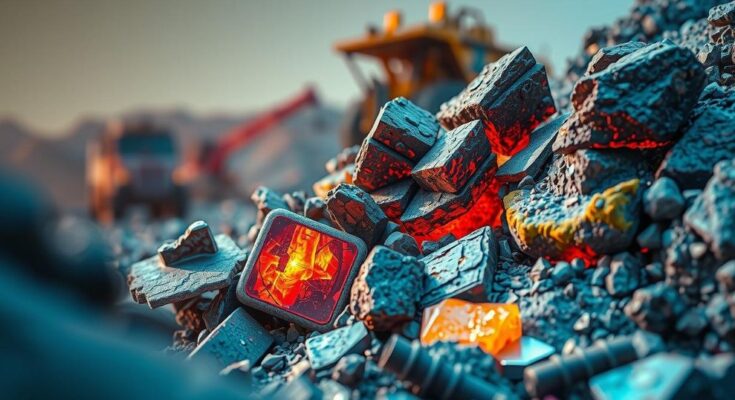The race for minerals essential for renewable technologies is projected to intensify in 2025, with increased scrutiny on environmental and social impacts. Governments in resource-rich nations like the Democratic Republic of Congo, Chile, Brazil, and the Philippines are vying for a share of the global demand for minerals necessary for clean energy, prompting concerns regarding the ethics of extraction practices and the welfare of local populations.
The global race for essential minerals necessary for renewable technologies is poised to intensify in 2025. European and North American governments are eager to establish access to vital materials while diminishing their dependence on China’s supply chains. With the expectation that demand for ‘net zero’ minerals will nearly triple by 2030, the mining of lithium, cobalt, and nickel is escalating in resource-rich regions such as Chile, the Democratic Republic of Congo, and the Philippines. However, the environmental and social impact on local populations is growing as resource-rich nations vie for a portion of this mineral rush.
In the Democratic Republic of Congo, cobalt reserves are primarily under the control of Chinese firms, even though the country holds a staggering mineral wealth worth an estimated $24 trillion. The eastern region is plagued by armed groups that control many mines, leading to human rights abuses and ongoing conflicts. Electric vehicle manufacturers are increasingly scrutinized regarding the sourcing of materials from these conflict zones, with legal actions being taken against major tech companies concerning the use of conflict minerals.
Chile, known for possessing the world’s largest lithium reserves, faces challenges concerning water usage in lithium mining in the Atacama Desert. The Chilean government has pledged to take control of the lithium sector, ensuring mining practices become more sustainable and involve consultations with Indigenous communities. Their strategy aims for an investment of $83 billion up to 2033, highlighting the balance between resource extraction and environmental protection.
In Brazil, a surge in mining activities has led to numerous conflicts involving Indigenous communities and fragile ecosystems. The Brazilian government is prioritizing increased investment in lithium production, notably in the Jequitinhonha Valley. Reports indicate hundreds of conflicts between mining entities and local populations, indicating the urgent need for addressing social justice alongside mineral extraction.
The Philippines, the second largest nickel producer globally, is experiencing a boom in mining as it aims for 50% of its vehicle fleet to be electric by 2040. However, the consequences include threats to biodiversity, Indigenous land rights, and safety. A significant portion of land designated for mining overlaps with critical biodiversity areas, urging a focus on better safeguarding Indigenous peoples’ rights amid rapid development.
As the pursuit of critical minerals accelerates, global actors must consider both the economic and ethical dimensions of this resource race to ensure sustainable and equitable practices in the transition to a greener economy.
The increasing global emphasis on renewable energy and electric vehicles has resulted in an escalating demand for critical minerals such as lithium, cobalt, and nickel. Countries rich in these resources, particularly in Africa and South America, stand to benefit economically. With global initiatives focused on achieving net-zero emissions by 2030, concerns about equitable resource extraction practices and environmental impacts have necessitated discussions surrounding the governance of mineral wealth. Countries such as the Democratic Republic of Congo, Chile, and Brazil are under scrutiny for both their rich mineral deposits and the social issues stemming from mining operations.
The competition for critical minerals essential for renewable energy technologies is set to escalate in 2025, posing both opportunities and challenges for resource-rich nations. The Democratic Republic of Congo, Chile, Brazil, and the Philippines are critical to this race. Policymakers must navigate the complexities surrounding environmental impacts and social justice to ensure the transition to a sustainable economy does not come at the expense of local communities or ecological integrity.
Original Source: www.context.news




